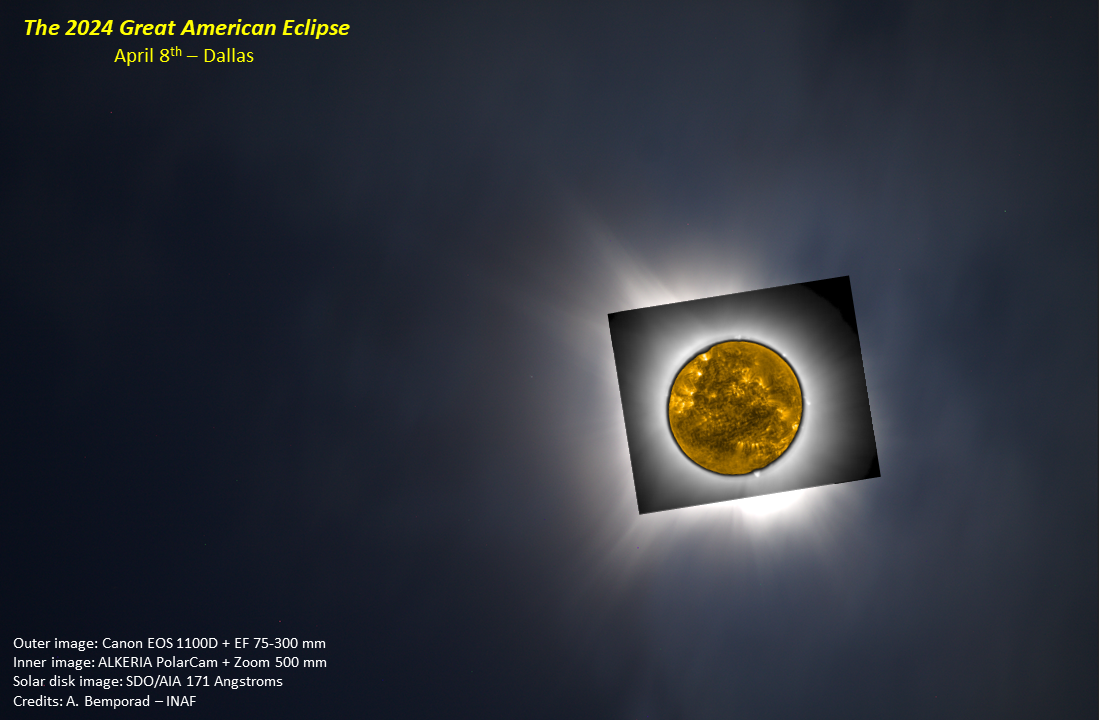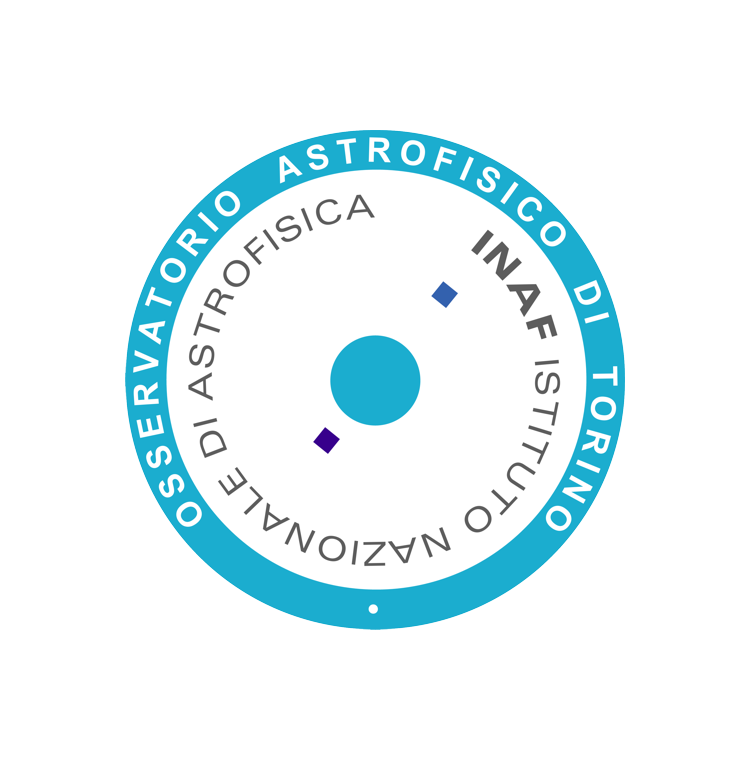
The great american eclipse. April 8th, Dallas, TX
Outer image: Canon EOS 100D + EF 75-300 mm - Inner image: Alkeria PolarCam+ Zoom 500 mm - Solar disk image:SDO /AIA 171 Å - Credits: A. Bemporad - INAF
Alessandro Bemporad
Giovedì 9 Maggio 2024, ore 11.00 – Sala Seminari Villa Magliola INAF-OATo
SEGUI IL SEMINARIO IN STREAMING
Abstract
On April 8th, 2024 the shadow of a total solar eclipse crossed Mexico, USA, and Canada.
This phenomenon was observed from Dallas TX with two different cameras: a standard DSLR camera equipped with a linear polarizing filter (the same successfully employed for the 2017 total solar eclipse), and a “Polarization Camera” (PolarCam), with a sensor incorporating a layer of linear polarizers above the pixels with four different polarization angles (0°, 90°, 45°, and 135°) for each macro-pixel.
In the selected observation site the duration of the totality was 4m and 9s: this time interval has been covered with the DSLR camera and the PolarCam by acquiring different sequences, bracketing different exposure times in order to cover the dynamic range of coronal brightness.
Data have been acquired not only during the totality, but also in the partial phases before and after the totality. One month after the eclipse, a first look at the raw data and a very preliminary data analysis are presented here.

